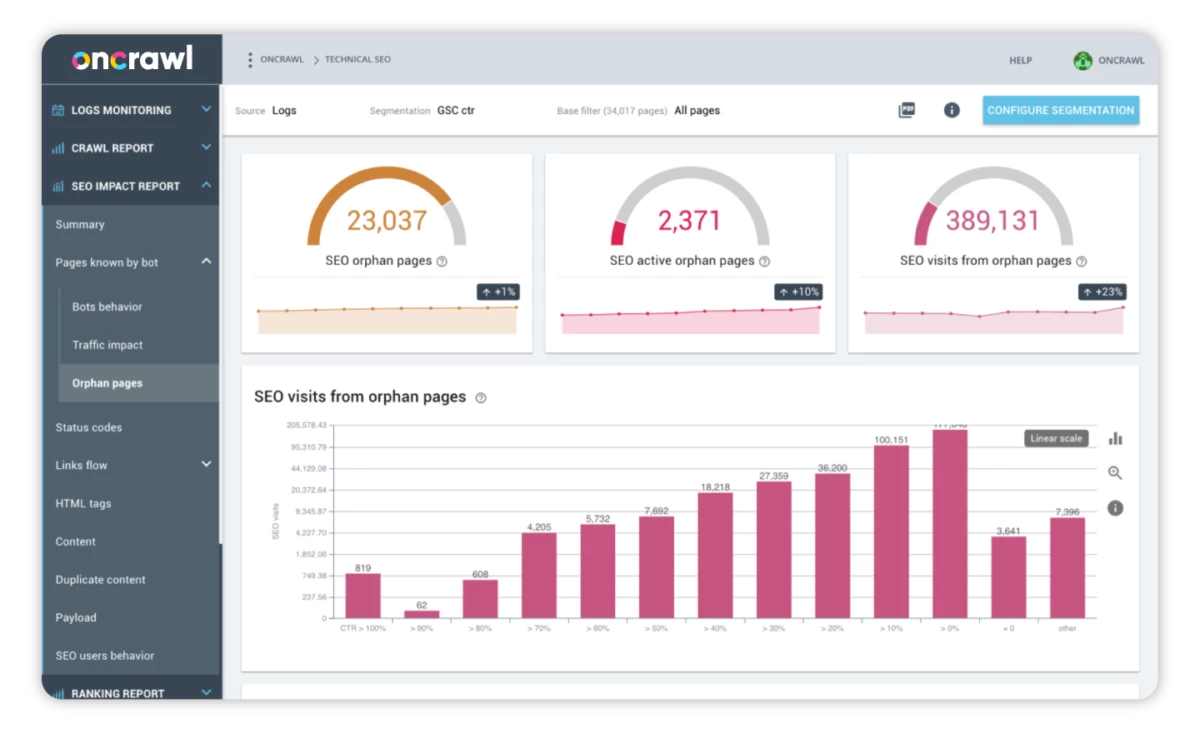Are you one of the many marketers struggling with the question, why is technical SEO important? Technical SEO is often seen as an afterthought by marketers.
They’ll put together a nice-looking site, add some keyword-heavy content and forget about it for a while.
When it comes to technical SEO, they might slap on some meta tags, throw up some XML Sitemap files and call it good enough.
Most marketers believe that technical SEO is only important in helping search engines understand what websites are all about.
This has a grain of truth to it but requires further explanation. So,
Why Is Technical SEO Important?
A website’s success is determined by how well it is ranked on search engine results pages (SERPs). It’s not enough to build a website and expect people to find it; you also need to ensure that search engines find and rank your site properly so people can easily find it.
Technically, SEO-optimized websites allow search engines to crawl easily, index, and rank them on their results page.
What Is Technical SEO?
Technical SEO is all about ensuring that your website is set up in such a way that it enables search engines to crawl, profile and rank it.
Technically, you could have a website that’s written compellingly, but if your site’s code is hidden or messy, search engines might not access it properly.
Technical SEO optimization improves your website’s overall quality. People who search for things online tend to look for specific terms related to their needs.
If your site has no relevant technical terms in its content, it will be more difficult for people to find it. Technical SEO also has a lot of practical applications.
For example, optimizing your site so people can easily find your products is important if you sell products online.
This could mean ensuring all the product information is easily accessible from the homepage. That’s where technical SEO comes in.
It ensures that your website is coded in a way that makes it easy for search engines and users to access, read, and understand.
Best Practices To Improve Your Technical SEO
The following tips will help you optimize your technical SEO making your website easy for search engines to crawl.
Your users will also have an easy time navigating your site, which will result in higher conversion rates.
Here are 10 best practices to improve your technical SEO:
1. Use Descriptive URL Structure
The URL structure is one of the first things Google crawls when it lands on your site. If your URL structure is not descriptive, you might get your site penalized.
The more descriptive your URL, the higher the chances are that a user will choose your site over other competitors.
When creating a URL structure, avoid using anchor text links. These are typically very short, exploitative phrases that automatically rank due to their relevancy.
2. Create an XML Sitemap to Guide Search Engines
When search engines come across a site they can’t map out correctly; they will look for a sitemap.
A sitemap is a page on your site that lists all the other pages guiding search engines on how to best navigate and index your website’s contents.
In fact, not having a sitemap is one of the biggest blunders you can make in terms of technical SEO. You’ll want to create an XML Sitemap, as Google prefers it over the standard HTML version.
3. Use Standard, Clean and Semantic HTML code.
You might think code is code, and it’s all the same, but you’d be wrong. Not only does your code need to be clean, but it also needs to be valid and semantic.
Clean code refers to the formatting and syntax of your code, and valid code refers to whether it follows the standard rules laid out by the W3C. Semantic code also follows the standards and adds meaning to your code.
4. Build your site with high-quality content and useful information
Google is all about the user. That’s why they’re constantly revising their algorithm to give users the best possible experience. When creating content for your site, you must ensure it’s high-quality and useful.
If it is, Google will love it. You’ll get slapped with a penalty for low-quality content if it isn’t. Another important thing to remember is that you should update your site regularly.
Google wants to see that your site is alive and well. They want you to update it so much that they’ve built a way for you to do it easily.
You can now use Google’s new release feature, which allows you to post an update to your site’s feed and push it out to the world.
5. Include Titles and Description tags in Your Header.
The header section of your HTML code is where you can add title and description meta tags. These tags are used in search engine results and are very important.
Make sure to put them in the header section of your HTML code, and search engines will pick them up.
6. Use Breadcrumbs Navigation
Breadcrumbs allow users to quickly navigate between sections of your website, which is crucial for SEO because it indicates that you have structured your site in a way that is easy to understand and use.
Breadcrumbs are especially important in technical SEO because they indicate that your site is easy to navigate, giving it an advantage over sites that don’t use breadcrumbs.
Breadcrumb navigation does not automatically increase rankings; however, it can improve rankings if used correctly.
If you want to increase rankings with breadcrumb navigation, make sure that it is relevant and works well on every page of your site.
Breadcrumb navigation boosts page load speed and reduces bounce rates. In addition, breadcrumbs can help users quickly find related content on your site, increasing the likelihood that they will stay on your site for longer.
How To Audit Your Site Technical SEO

Once you’ve identified some technical issues with your website, you can start to fix them. Some common technical SEO issues include duplicate content, broken links, and redirects.
By auditing and improving your website’s technical SEO, you can make sure that search engines can properly index and rank your site. This can help you get more traffic and visibility for your business.
Steps You Should Take To Make The Most Of Your Technical SEO Results.

At this point, you’ve identified the areas where your technical SEO can be improved. Now you’ll need to decide how to proceed from here.
To make the most of your technical SEO audit, you’ll want to follow these steps:
1. Formulate a Plan.
Formulating a plan should be your first step in acting on SEO audit results for your site. This plan should identify the key areas you need to improve and the steps you need to take to make those improvements. Without a plan, it can be easy to get lost in the weeds and make irrelevant changes.
Creating a plan doesn’t have to be complicated. Start by looking at your site and identifying areas that could use some improvement. Then, create a list of specific actions you can take to improve each area.
Once you have your plan, start making changes and track your progress. If you stick to your plan, you should see a noticeable difference in your site’s technical SEO.
2. Set measurable goals for your technical SEO efforts.
There are a few factors to consider when setting goals for your technical SEO. First, you need to ask yourself this question, what do you want to accomplish with your improved technical SEO? Once you know your goal, you can set measurable goals.
Some common goals for technical SEO include;
- Improving your website’s load time
- Increasing your organic traffic
- Improving your website’s structure and code.
Once you have set your goals, you can begin to track your progress and adjust your efforts as needed. By setting measurable goals for your technical SEO efforts, you can ensure
3. Implement your plan and track your progress.
Once you’ve created an actionable plan for improving your technical SEO, it’s time to implement it. Some key metrics you should track include organic traffic, website visits, conversion rate, and Rankings.
If you have limited time or you are not conversant in the subject, consider outsourcing professionals to help you. Several firms offer technical SEO services.
Michigan SEO is one of the best SEO firms. They can help you with everything from auditing your site to fixing technical issues.
While outsourcing may cost you a bit more, it can be well worth it in the long run if it means getting your technical SEO done right.
Conclusion
The answer to the question, why is technical SEO important? It is rather straightforward. Nowadays, people use a variety of search engines to look up information about a product or service. Businesses must ensure that their sites are optimized for all possible channels.
Thanks to technical SEO, you can ensure that the search engines can properly crawl your website properly in order to improve your ranking. If you want your website to be successful, you must ensure that it’s set up appropriately and has a strong technical SEO strategy.







